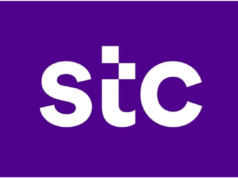Nigeria’s education sector is quietly experiencing a transformation — one driven by digital innovation, ambition and a growing demand for flexible, career-ready learning. More than ever, Nigerians are turning to online learning platforms to gain skills, explore new career paths, and access quality education without the traditional classroom constraints.
Table of Contents

A New Chapter in Nigeria’s Education Landscape
EdTech — educational technology — is no longer a niche idea in Nigeria. Instead, it is rapidly becoming a critical component of the country’s educational fabric, with startups and established platforms alike building new pathways for learners. Artificial intelligence-powered tools, microlearning models, and cohort-based academies are all playing a part in reshaping how Nigerians learn.
At the front of this wave is Univad, which offers diploma and short professional courses. What sets it apart is not just its content but its suite of AI-driven tools: learners can summarise study materials, generate reports, build flashcards, even simulate interviews for job readiness. The platform’s also serious about post-course employment — it links graduates to potential employers. Such integration of AI with career support is helping bridge the gap between learning and real-world outcomes.
Dr Chinwe Elochukwu, a principal lecturer at the Federal Polytechnic Oko, highlights a key challenge: despite the promise, “affordability, impact and credibility remain the key hurdles,” she says. This speaks to a broader concern in Nigeria’s EdTech ecosystem — how to ensure online credentials are both accessible and meaningful.
Who’s Driving This Growth — and How
Beneath the surface of this EdTech surge is a constellation of startups, each addressing different corners of Nigeria’s educational needs.
- AltSchool Africa delivers academy-style learning for software, product and design through cohort-based programs, heavily emphasising project work and mentorship.
- Utiva supports learners aiming for careers in data, technology, and product management. Live instruction and career-facing support make it ideal for people pivoting into tech.
- uLesson, founded by Sim Shagaya, targets the K–12 market with video lessons, quizzes, and progress tracking — all tailored to West African curricula.
- Afrilearn, meanwhile, gamifies learning for secondary students, especially in science and mathematics.
- Klas provides a platform for teachers and content creators to run live courses and monetise their knowledge.
- Other players include Tuteria, which links learners to both in-person and online tutors, and Gradely, which helps identify learning gaps with analytics.
- For working professionals, Learners Corner offers bite-sized, skill-based lessons — enabling continuous growth without giving up a full-time job.
These companies reflect a clear shift: EdTech in Nigeria is not just about delivering lessons — it’s about delivering impact.

Persistent Hurdles on the Road to Scale
Despite the momentum, EdTech in Nigeria is not without roadblocks. The growth story is tempered by real, systemic challenges.
Connectivity and cost are top concerns. Internet access remains uneven across the country, especially outside urban hubs, and mobile data is still prohibitively expensive for many. Without broader infrastructure improvements, the reach of online learning remains limited.
Recognition of online qualifications is another hurdle. While platforms like Univad offer highly relevant courses, there is still uncertainty around how their certifications are viewed by employers and institutions. As Dr. Elochukwu noted, credibility must be built and maintained.
Finally, measuring learning outcomes remains complex. With many platforms offering flexible or asynchronous learning, ensuring students genuinely understand and retain material — rather than just complete courses — is difficult. Accountability and quality assurance will be key in sustaining trust in the EdTech ecosystem.
The Bigger Picture: Why Nigeria’s EdTech Is Poised to Lead
Several broader trends and demographic realities make Nigeria a fertile ground for EdTech innovation.
- Youthful population: Nigeria has a large, young population hungry for skills and upward mobility. EdTech offers an attractive way for this generation to acquire those skills on their own terms.
- Rising demand for digital skills: Employers increasingly expect tech-savviness. Platforms that combine education with practical career training (like Univad or Utiva) are well placed to serve this need.
- Flexible learning options: For many Nigerians, traditional education can be rigid. EdTech offers more flexible learning models that accommodate part-time work, remote study, and non-traditional learners.
- Investor and regulatory attention: As more EdTech startups demonstrate impact, they’re increasingly attracting interest from investors, regulators, and the public. Their success could define the future of education in Nigeria.
The shift is clear: EdTech is no longer just a digital supplement to Nigerian education — it’s becoming a central vehicle for lifelong learning, career advancement, and national development.

Conclusion
Nigeria is firmly in the midst of an educational transformation. With a growing EdTech ecosystem that spans K–12, higher education, vocational training, and professional development, the country is charting a path toward more inclusive, flexible, and outcome-driven learning.
Yet, for this revolution to truly succeed, challenges like internet access, recognition of online credentials, and quality assurance must be addressed. The platforms that can balance innovation with trust — those that connect learning to real-world opportunities — will likely lead the way.
As EdTech startups continue to scale, their impact could be profound — not just for individual learners, but for Nigeria’s broader economic and social future.
Join Our Social Media Channels:
WhatsApp: NaijaEyes
Facebook: NaijaEyes
Twitter: NaijaEyes
Instagram: NaijaEyes
TikTok: NaijaEyes





